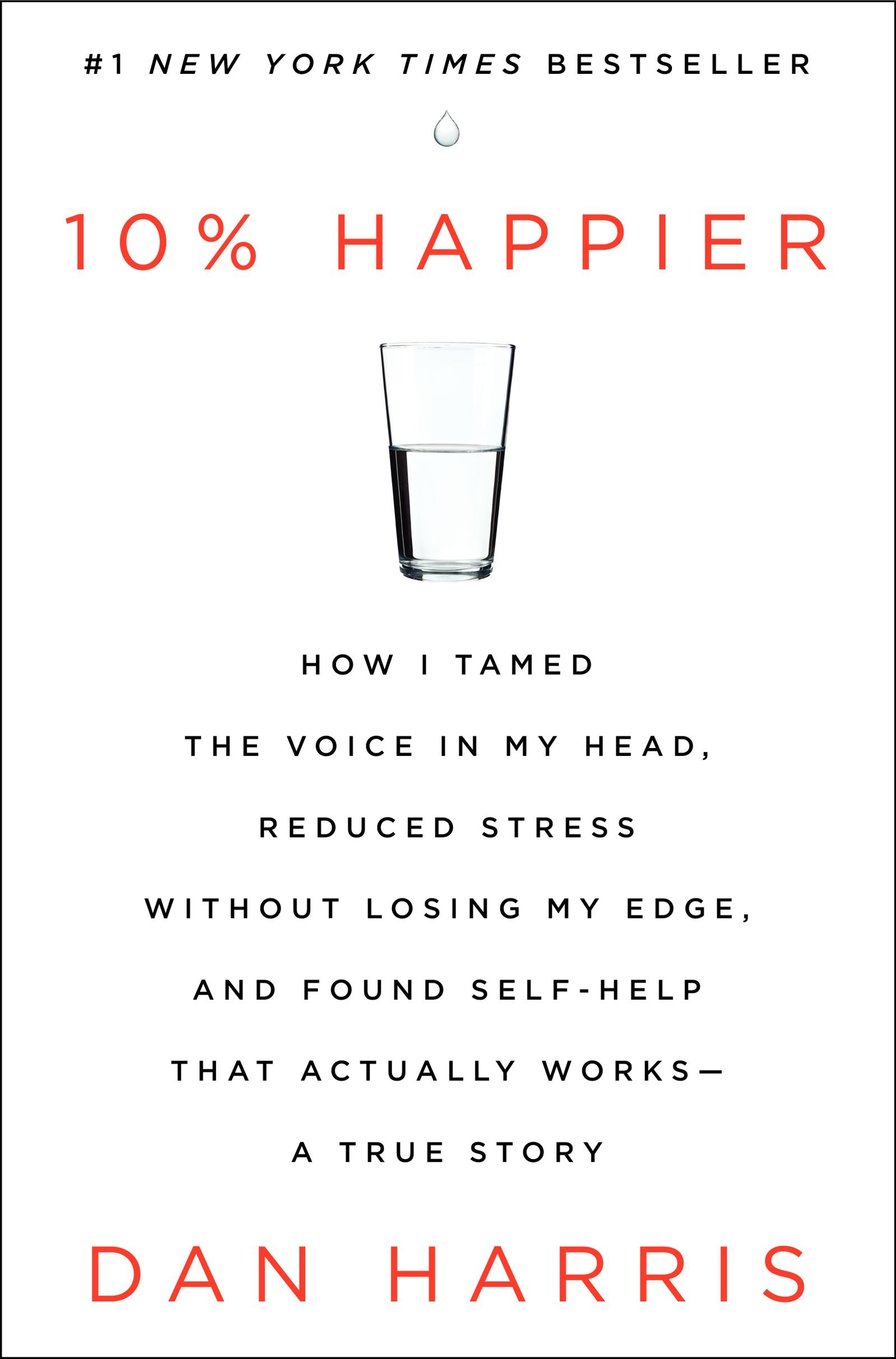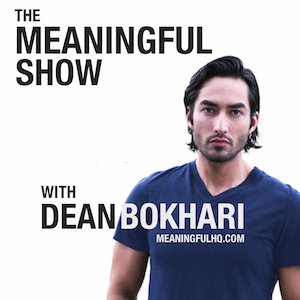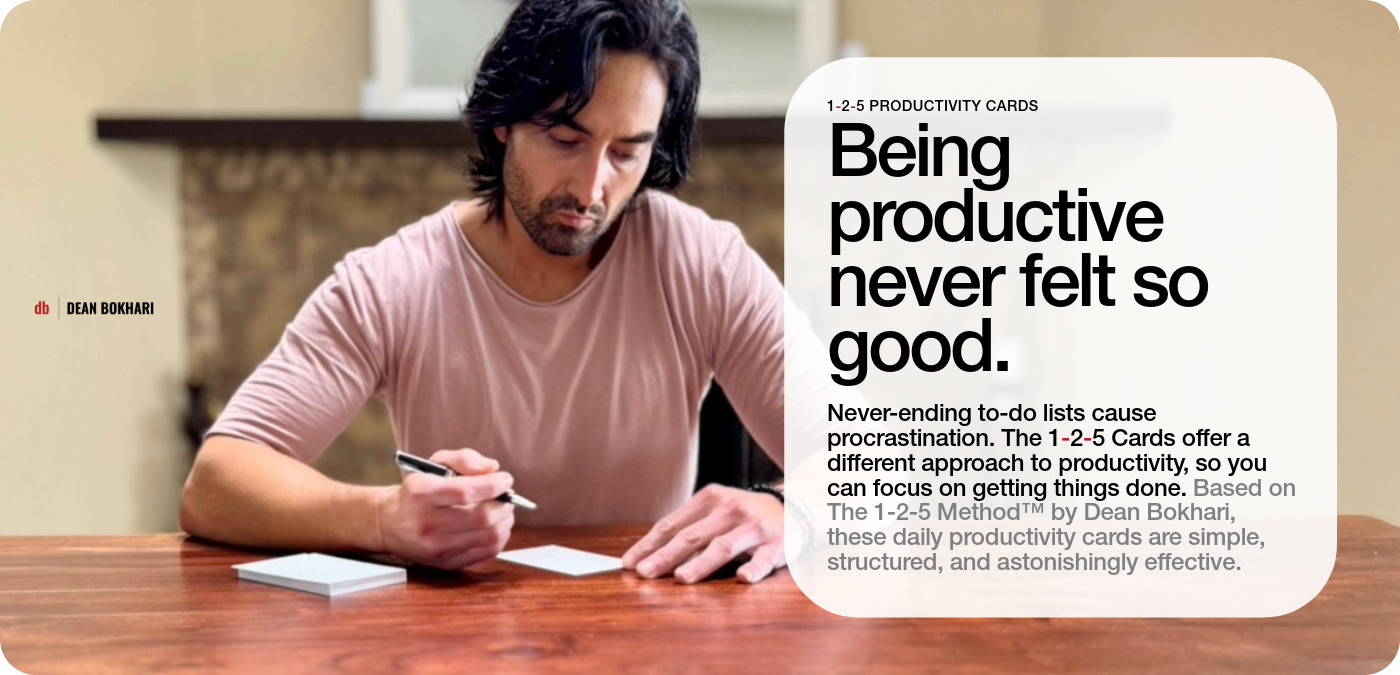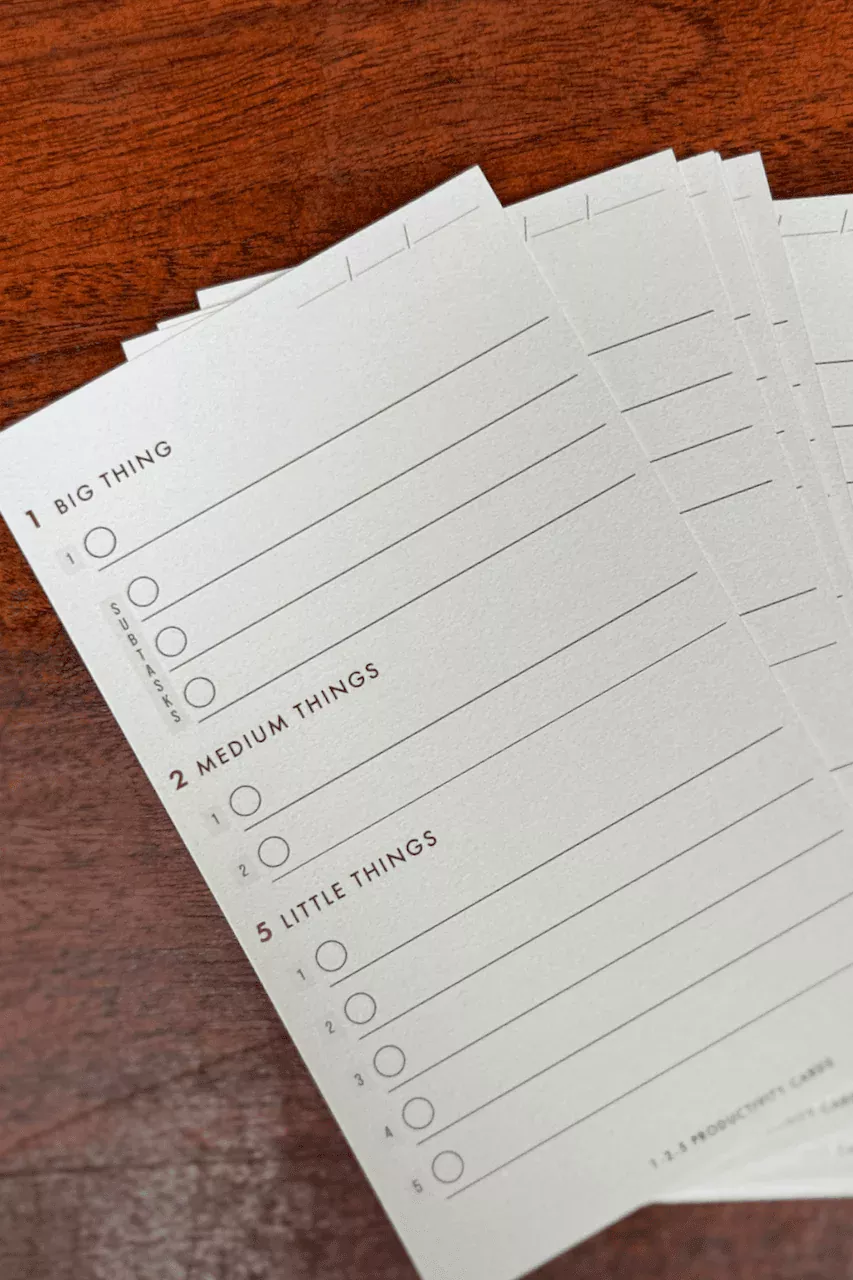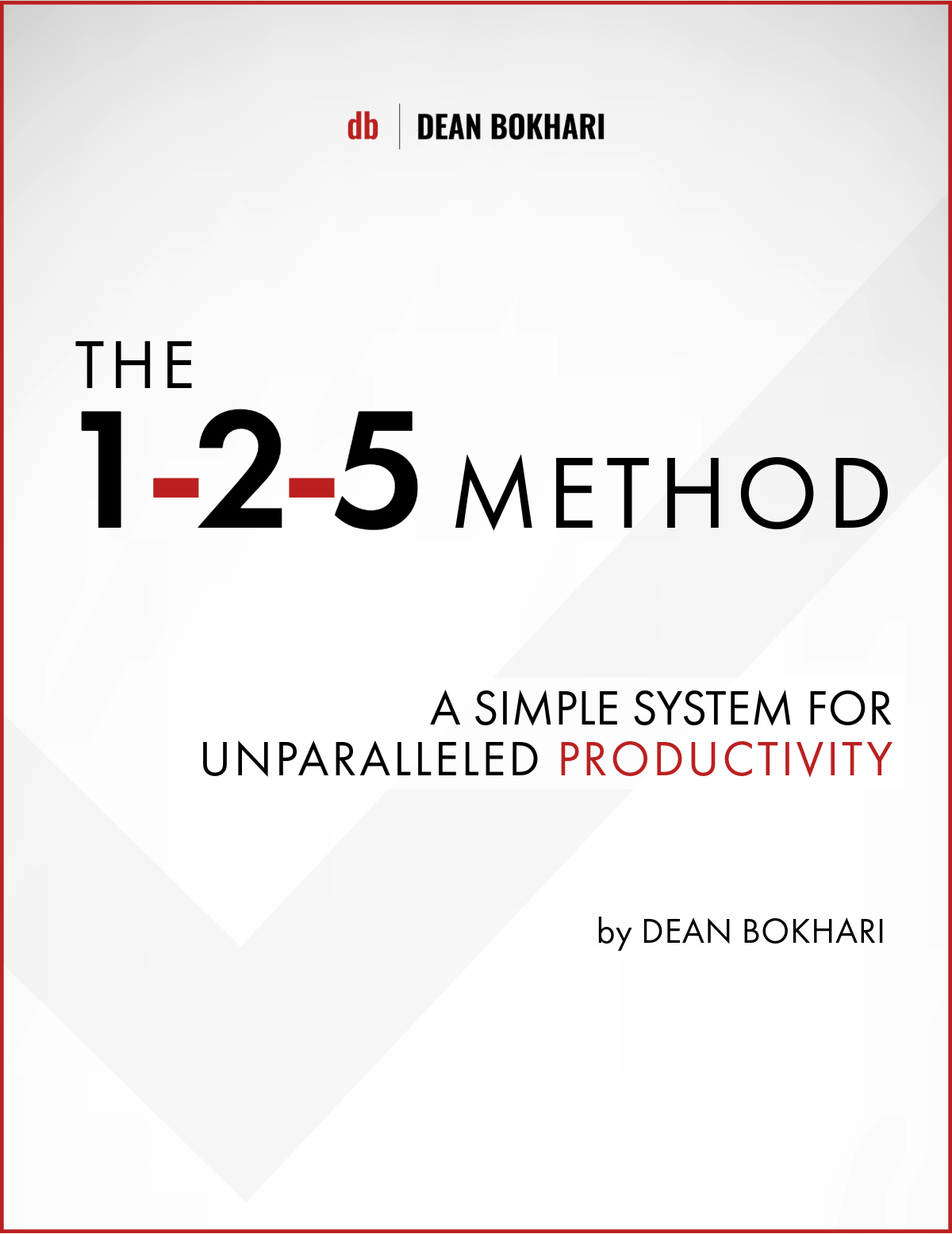10% Happier: How I Tamed the Voice in My Head, Reduced Stress Without Losing My Edge, and Found Self-Help That Actually Works–A True Story by Dan Harris // Book Summary
10% Happier
What if you could learn to calm your mind, relax under pressure, and de-stress your life without losing your edge?
Impossible, you say?
That’s not what author Dan Harris claims... His book, 10% Happier offers a practical way to approach mindfulness in the modern world. And on today's episode of The Meaningful Show, we're going to be doing an audio summary on Harris' book.
Here's what you'll learn about in this episode:
- The various forms of achieving enlightenment through mindfulness,
- How to deal with stress more effectively,
- and how to meditate.
Can't see the audio player above? Here are alternative ways to listen:
Audible Audiobooks • Thousands of titles to choose from + listen to on any device. Download your free audiobook here.
FlashBooks Book Summaries • Hundreds of self-help and business book summaries you can read (or listen to!) in about 20 minutes per book. The best part? The book summaries are designed specifically for busy peeps on the go (like you, perhaps?) Start your risk-free, 7-day trial here.
Want more details? With FlashBooks, you can get your knowledge on whenever you want, wherever you want. You can listen to audiobook summaries on your morning commute to work, or you can easily read a summary on your phone while you're waiting in line at the bank. No matter what you're doing or where you're going, FlashBooks are flexible enough to be taken along for the ride, ready to help you get more knowledge in less time. Get access to hundreds of best-selling business + self-help book summaries for just $1 here or visit getflashnotes.com/join to get started today. Join for just a buck today. If for some reason you're not diggin' it, you can easily cancel whenever you want (but if you're anything like any of our 150,000+ other members, you'll probably wanna stick around!) Join for just $1: getflashnotes.com/join
10% Happier by Dan Harris : Book Summary
Intro
10% Happier is a kick-ass book for anyone who doesn’t take offense to me referring to a book about spirituality a “kick-ass” book… Written by news anchor, Dan Harris, who does his best to de-mystify meditation so that busy people in the modern world can understand it and actually *use* it without having to wear a white toga and go vegan for the rest of our lives. All-in-all, it’s an excellent primer for anyone who’s interested in learning more about meditation — and how to use it in their daily lives — in the most practical (and BS-free) way possible. It’s also worth noting that Harris is hilarious. It’s rare to find a book that makes you laugh and makes you think at the same time.
At it’s core, this is a book about a day-time talk show host who’s highly ambitious, addicted to drugs, incredibly competitive, and on the brink of a total life-meltdown… until he has an on-air anxiety attack, which prompts him to go to therapy, sober up, and eventually agree to embarking on a spiritually-themed journalism project imposed upon him by his boss (legendary news anchor, Peter Jennings).
Harris’ spirituality-themed journalism project gave Harris the opportunity to learn about and interview prominent religious figures + self-help superstars like Ekhart Tolle, Deepak Chopra, and the infamously controversial Pastor-turned bi-sexual drug addict—Ted Haggard.
After a long string of stories filled with religious figures who take hypocrisy to the highest level, and an equally bull-shit fueled series of run-ins with self-help “gurus”; Harris eventually stumbled upon something that he thought might hold the answers to his own spiritual conundrums. What was the answer that could finally help him tame that overly self-critical voice in his head? Mindfulness…
What is mindfulness?
”What mindfulness does is create some space in your head so you can, as the Buddhists say, “respond” rather than simply “react.” In the Buddhist view, you can’t control what comes up in your head; it all arises out of a mysterious void. We spend a lot of time judging ourselves harshly for feelings that we had no role in summoning. The only thing you can control is how you handle it.”
Meditation 101:
- Sit down.
- Get comfortable
- Focus on your breath.
That’s it.
While you’re doing this, you mind is going to have a million different thoughts whizzing by your brain like a freight train on a highway. This happens to the best of us. When you observe it happening, don’t fret; just *re-focus* your thoughts on your *breath* (and don’t think about how you’re “not doing it right”)
What’s the best environment to meditate in? Anywhere. Find a space that you feel comfortable enough to put yourself (and your thoughts) at ease. This might be your office, a park bench, your living room, whatever. Pick a place to start your practice and resolve to do it for 5-30 minutes at a time (set the alarm on your smart phone) starting with 5 and working your way upwards to 30 (and past that if you like).
What are the benefits of meditation? It teaches to observe the contents of consciousness (the voice in your head) without judgement.
The essence of mindfulness = the ability to recognize what is happening in your mind right now—anger, jealousy, sadness, the pain of a paper cut, etc.—without getting carried away by it.
According to the Buddha, we have 3 habitual responses to everything we experience:
#1. We want it (ex: cookies)
#2. We reject it (ex: swatting away mosquitos)
#3. We zone out (ex: airplane-safety demonstrations by flight attendants)
But there’s also a fourth option — Mindfulness… which is a way to view the contents of the mind without being attached to them. For example: avoiding the physical urge to literally scratch an itch on your leg. Rather than itching it or doing something about it, the act of *only* being aware of it is what Mindfulness is.
After a little practice, you’ll rise to the level of being mindful about the more difficult things in life — your thoughts + emotions.
Be present.
”Make the present moment your friend rather than your enemy. Because many people live habitually as if the present moment were an obstacle that they need to overcome in order to get to the next moment. And imagine living your whole life like that, where always this moment is never quite right, not good enough because you need to get to the next one. That is continuous stress.”
After interviewing Ekhart Tolle, Harris has a flash of insight about making friends with the present moment… it’s not necessarily about being passively present as much as it’s about being present about the reality of things.
For example: let’s say you get upset because you lost a promotion or business opportunity that you think you deserved. Instead of getting all worked up about losing out on an opportunity, it’s worthwhile to consider taking it as a learning experience and deciding on a better or more effective course of action from *that moment* onward to up your chances of getting that promotion or capitalizing on the next great business opportunity.
Actionable insights:
* The Waterfall Method - If you’re still having a tough time “getting” this whole mindfulness thing, take a quick sec to visualize a waterfall… The water represents your thoughts + emotions. Mindfulness is the space *behind* the waterfall. Get it? Waterfall = thoughts + emotions. Space behind waterfall = mindfulness.
Obsessive worry about past + future prevents you from living in the present.
”Perhaps the most powerful Tollean insight into the ego was that it is obsessed with the past and the future, at the expense of the present.”
Another key insight from Tolle that Harris points out about himself is his track record of avoiding the Now (“Now” = how Tolle refers to the present moment). Harris realized that he’d been sleep walking for most of his life — dreaming about his future goals; or ruminating about past problems, pains, or mistakes.
Actionable insights:
* So what’s the key to combatting the ego and staying in the Now? Always say “yes” to the present moment.
* When necessary, decide an appropriate course of action to take from the Now. Don’t be blissfully passive about things when you know you shouldn’t.
Make it R.A.I.N.
If you’re having a bad day, or if you’re overly worried about some situation in your life, here’s a great method to helping you put life back into perspective and make you feel better. The technique comes in the form of an acronym that spells out “RAIN” (R: recognize A: allow I: investigate N: non-identification). Here’s how to put it into practice:
* Step 1) Recognize: to acknowledge the actuality/reality of a thought.
* Step #2) Allow: once we’ve acknowledged our feelings it’s now time to just “let them be” or “let it/them go”
* Step #3) Investigate: next, we want to checkout how these feelings/thoughts are affecting our bodies (are the thoughts/feelings arising in consciousness making your head throb? Are they making your face itch? What’s the feeling you’re feeling?)
* Step #4) Non-identification: “The final step—“non-identification”—meant seeing that just because I was feeling angry or jealous or fearful, that did not render me a permanently angry or jealous person. These were just passing states of mind.”
Respond rather than react.
“You create little spaces in your daily life where you are aware but not thinking,”
Rather than allowing your thoughts to arise and your body to react to them — try using the pause between stimulus and response to determine your next most effective course of action. Don’t let frivolous thoughts and the everyday situations of life control you.
More often than not, most folks live in thought-less reaction; reacting to things without pausing — almost as if we were programmed to behave that way. Although gut-reactions can be a good thing sometimes — say, when we’re running away from a lion or something — it’s not necessarily a good thing most of the time… especially since we no longer need to run away from lions.
Responding is different.
When we respond rather than react, we take a moment to pause, perceive, and proceed based on what we believe to be the next best course of action.
For example:
REACT: someone cuts you off on the highway. You get pissed. Honk your horn. Flip em’ the bird, while you speed by yelling f-bombs at the top of your lungs. This doesn’t make you feel any better about the situation.
RESPOND: someone cuts you off on the highway. You notice how pissed you’re getting (the reaction) but you pause for a sec, perceive the situation (“I’m not gonna let this person ruin my day”), and then you proceed based on what you believe to be the next best course of action (“besides, what good will come of me getting angry, speeding by, and cursing them out with my middle finger in the air?”) … the thing you realize while you’re having this inner dialogue is this: who knows what the person who cut you off is going through in life? Maybe he just found out his dad had a heart attack, so he’s rushing to get to the hospital. Or, maybe he’s just a jackass who doesn’t care about people. Either way, reacting to this person’s behavior puts *others* in control; putting us at the mercy of external events. Responding on the other hand, gives us an opportunity to clarify what’s best for *us* at any given moment.
So next time you get angry and are tempted to react — just take a moment before acting out irrationally. Watch the irrational temptation to act irrationally arise, and then just let it go away. This is easier said then done. It takes a little practice. And some situations might be easier to respond to than others. But don’t let up… watch it happen, then respond accordingly.
Enjoy the journey.
”The pursuit of happiness becomes the source of our unhappiness.”
If you’re like me, you like to achieve… To do… To get things done… wanna know why that’s a problem? Because sometimes, our focus falls into that “when I get X I’ll finally be happy” mode. And that’s what makes us UN-happy.
So how should we deal with it? Simple: enjoy the moment. Relish the journey. Smell the roses. Have a blast while you pursue that thing of yours. Because happiness is actually the bi-product of pursuing a worthy goal. To put it another way: happiness is what happens when we think we’re pursuing happiness (in the form of a clear goal).
Actionable insights:
* Figure out what you want,
* enjoy the journey towards getting it,
* but don’t get so attached to the result (what you want) that—if you don’t get it—it’ll totally piss you off.
One more analogy: try to climb the highest mountain you can, do your best and *enjoy the climb*, but don’t get down on yourself if you don’t make it to the top.
Practice letting go (without losing your edge).
“Studies showed that the best way to engineer an epiphany was to work hard, focus, research, and think about a problem—and then let go.”
You don’t need to lose your edge or become a pushover when you tame your ego.
Some people dread the Buddhist concept of “letting go,” because they perceive it as being submissive or soft.
To take an example from the book — Marc Epstein (a spiritual role model of sorts to Dan Harris) referred to people he’d known or helped who’d misinterpreted the teachings of Buddhism entirely—denying themselves of orgasms during sex or refusing to order what they really wanted to eat at restaurants in an effort to avoid expressing personal preference…
… This is nonsense. And it’s also damaging to the individual.
Yes, it’s important to tame your ego. But not at the expense of your own human needs. And certainly not by becoming a pushover.
For example: A meditation teacher by the name of Munindra used to advise his students to keep things “simple + easy.” One day, one of Munindra’s students saw him negotiating over a bag of nuts in the village market. When the student approached Munindra — asking about whether he was violating his own “simple + easy” mantra — Munindra replied: “I said be simple, NOT a simpleton!”
Controlling your ego does not mean that you have to lose your edge or stop being a productive member of society.
In fact, according to professor Jon Kabat-Zinn, practicing mindfulness actually makes you more creative + more productive. How? By clearing your mind of unhelpful / negative assumptions and routines, thus opening up the space for new (and positive) ideas and thoughts.
One of Harris’ adventures as described in the book, was a 10 day meditation retreat, during which he mentions being flooded with new ideas coming into his mind from every direction. So many in fact, that he filled up entire notebooks with them. It turned out to be one of the more productive moments he’d ever experience… and it was a result of thinking LESS, not MORE.
Interestingly, one of the most important discoveries that the author made on his journey to tame his ego was that high levels of stress or the need for competition weren’t necessary to fuel his drive.
Quite the contrary: he found that it was a much more satisfying exercise to control these urges than to indulge in them.
Closing notes.
KEY TAKE-AWAY:
• The modern society + culture we live in today bombards us with information coming at us from pretty much every conceivable direction — something seems to buzz, bing, or flash almost every other minute — pulling our attention from here to there — all the while without ever getting anywhere. This sends a wide array of stress-inducing chemicals (like cortisol) surging through our brains and bodies… which eventually leads to a sharp decline in our physical, emotional, and mental well-being. Bottom line? This kinda stress is making us really sick. One way to deal with is medication. This method, unfortunately, is only a bandaid. A better, more sustainable method of handling all the stress is by practicing meditation, which leads to a healthier, compassionate, and mentally-stable lifestyle bursting with fulfillment and purpose.
ACTIONABLE INSIGHTS:
• Maximize mindfulness + compassion for yourself + others through Metta-Meditation:
⁃ Envision yourself in your mind’s eye and repeat the following set of mantras:
⁃ May you be happy,
⁃ may you be healthy,
⁃ may you be safe,
⁃ may you live with ease.
⁃ Next, repeat the same set of mantras for others — namely, the following individuals in the following order: a “benefactor”, a dear friend, a neutral person, a person you have difficulties with (or hate/dislike), and all living beings… although this might seem hard or weird at first, you’ll be pleasantly surprised at the peace of mind it brings into your life. (To put it another way — don’t knock it till yah try it, alright?)
###
ABOUT THE AUTHOR:
• Dan Harris is the coanchor of Nightline and the weekend editions of Good Morning America. He regularly reports for 20/20, World News with Diane Sawyer, and the weekday editions of Good Morning America. Before joining ABC News fourteen years ago, he worked for local news outlets in Boston and Maine. He lives with his wife, Bianca, in New York City. 10% Happier is his first book.[1]
BONUS NOTES + CRUCIAL QUOTES:
• Buy the book. Click to order ’10% Happier’ on Amazon
• Get hundreds of book summaries with a FlashNotes Membership. It’s a dollar to join, and you can cancel anytime you want. Learn more at: http://www.getflashnotes.com/join
• Download 2 FREE FlashNotes book summaries. Visit http://www.getflashnotes.com/join-library
• FREE Audiobook Summaries: http://www.getflashnotes.com/podcast
• Crucial Quotes:
⁃ “Meditation has even been called the “new caffeine.”
⁃ The Buddhists analogy: Picture the mind like a waterfall, they said: the water is the torrent of thoughts and emotions; mindfulness is the space behind the waterfall.
⁃ “Happiness is a skill.”
⁃ “There’s no point in being unhappy about things you can’t change, and no point being unhappy about things you can.”
[1] https://www.goodreads.com/author/show/7890536.Dan_Harris
10% Happier | Get the book
- Click here for the full GetFlashNotes book summary
- Click below to buy it on Amazon
LIVE LIKE YOU GIVE A DAMN,
Dean Bokhari
- If you find the podcast helpful, please rate + review it on Apple Podcasts »
- Got a Self-Improvement question you'd like me to cover? Submit it here »
"Dean Bokhari's Meaningful Show is the Self-Improvement Podcast I've been
waiting for. It's actionable, inspiring, and BS-Free." —Brett Silo
✨ New Series: How to Become an Early Riser
- Discover key methods to make early rising a habit
- How to wake up early + energized every morning
- Morning routines for health + success
Free self-development courses
👇
Tap on any of the courses below to start learning how to:
- boost your productivity (with GTD),
- get focused (with Deep Work),
- or learn the art of influencing others (with the How to Win Friends & Influence People course.)
All for free.
👇
Free life guides
👇
Best-selling Self-development courses by Dean Bokhari
Kill procrastination.
|
Get stuff done.
|
Get motivated.
|
Connect with anyone.
|
freshly pressed:
Top Audiobooks narrated by Dean Bokhari on audible | |
Book summaries
- The Power of Habit by Charles Duhigg
- 12 Rules for Life by Jordan B. Peterson
- Presence by Amy Cuddy
- Leaders Eat Last by Simon Sinek
- The ONE Thing by Gary Keller, Jay Pasan
- Deep Work by Cal Newport
